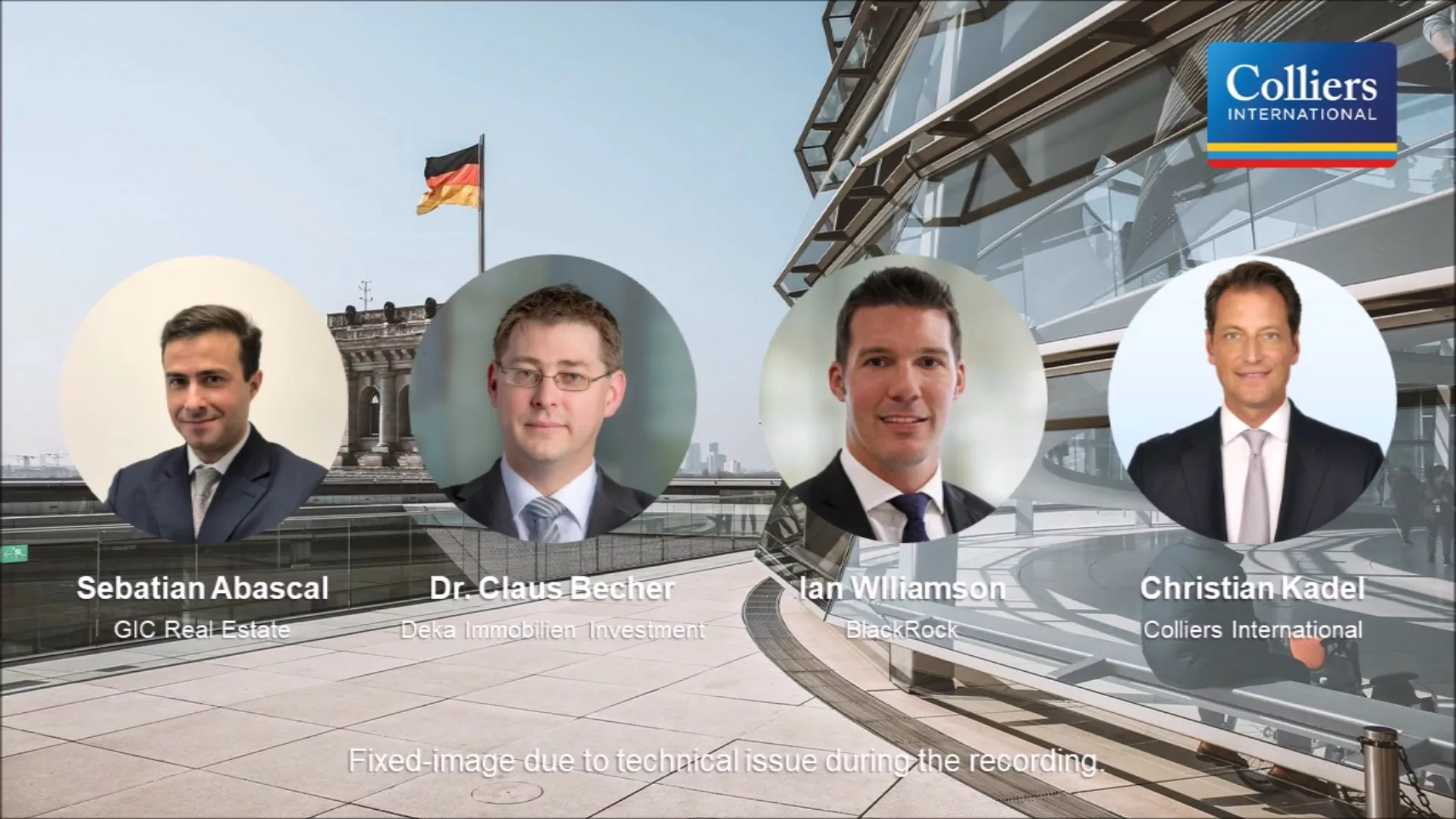12. Investment Talk Germany:
Investment strategies and outlook for 2021
9 October 2020 – In our online event „Investment-Talk Germany: Investment strategies and outlook for 2021“, we examined the current performance of the German real estate market from an international investor‘s perspective and discussed possible scenarios for next year with our guests Dr. Claus Becher (Deka Immobilien Investment GmbH), Ian Williamson (BlackRock) and Sebastien Abascal (GIC Real Estate).
Stability is key
In uncertain times like these, investors are looking for a safe haven for their capital. Germany is proving to be relatively crisis-resistant and continues to be considered the stable backbone of the European economy. There are several reasons for this assessment:
Being part of the largest national economy in Europe, the German real estate market has sufficient liquidity to ensure fundamental market volatility for years to come – an important factor for international investors looking for low risk investments in a sensitive global environment. The low unemployment rate in Germany also gives an indication of investment stability. In this context, political constancy also plays a key role in risk assessment. For example, in contrast to other countries, a fundamental change of politics or even an exit from the EU or other alliances is considered impossible for Germany.
Another important factor is diversification. Germany’s federal structures have historically ensured that investment activities do not mainly focus on one metropolis only. Many strong cities and metropolitan areas whose real estate markets are of international importance ensure polycentric stability. This depth of the German market is made visible and assessable by pronounced market transparency, providing easier access for international investors.
Due to the resilience of the real estate market, Germany is a popular investment destination for a variety of investment strategies and international capital. Therefore, the competition for attractive investments is higher than in other European countries. Investors must define a very specific investment strategy in order to be successful in the highly competitive German market.
Outlook 2021: which trends are shaping the investment market?
The asset classes office, logistics and residential are considered to have positive prospects. Mixed-use properties (including retail and hospitality) are still promising investment targets as well. By contrast, it is likely to get more difficult to attract risk-conscious capital to pure retail real estate and hotels due to travel restrictions, social distancing and e-commerce. International investors will continue to focus on the volatile German A-cities but are also showing increased interest in high-yield B- and C-locations, especially in terms of logistics and residential real estate.
Another factor that investors will pay more attention to in future are ESG criteria (environment, social, governance) regarding properties and tenants. In order to be considered a low-risk investment, a property must meet ecological and social criteria in its overall structure, including the companies operating there. Germany receives a generally good rating in this respect.
Forecast for the German real estate market It is very likely that international investors will regard Germany as a safe haven for their capital investment in 2021 and continue to invest. Since domestic investors also continue to rely heavily on the German real estate market, the forecast for its general development is positive.

